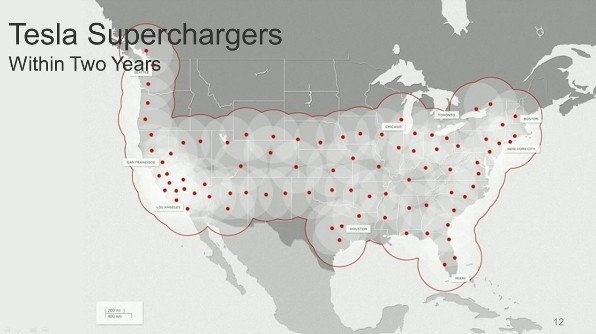Tesla Motors has unveiled a network of high-speed electric car recharging stations known as Superchargers. The company built six of these new booths around middle and southern California in secrecy ahead of the launch with plans to install stations throughout California next year.
Superchargers draw power from solar technology captured by SolarCity, a company that just happens to be owned by Tesla CEO Elon Musk. A 30-minute recharge from a Supercharger will out 100 kilowatts for Model S vehicles which equates to about three hours of driving time at 60mph. Musk said future versions could go as high as 120 kilowatts meaning less waiting time while you recharge.

The plan is to have recharging stations along high traffic corridors across the US and even into Canada within two years. Within four or five years, the company plans to have stations blanket virtually all of the US and the lower part of Canada. Superchargers will also be coming to Europe and Asia in the second half of 2013, Musk said.
The solar cells are actually able to generate more power than the cars use while driving – pretty impressive. The good news doesn’t stop there, however, as all Model S owners will be able to top off their batteries for free at any Supercharger station anytime they want. As Musk said, you’re not going to get that with gasoline.
Do you own an electric vehicle or would you be tempted to get one once Tesla rolls out their Supercharger stations across the country?